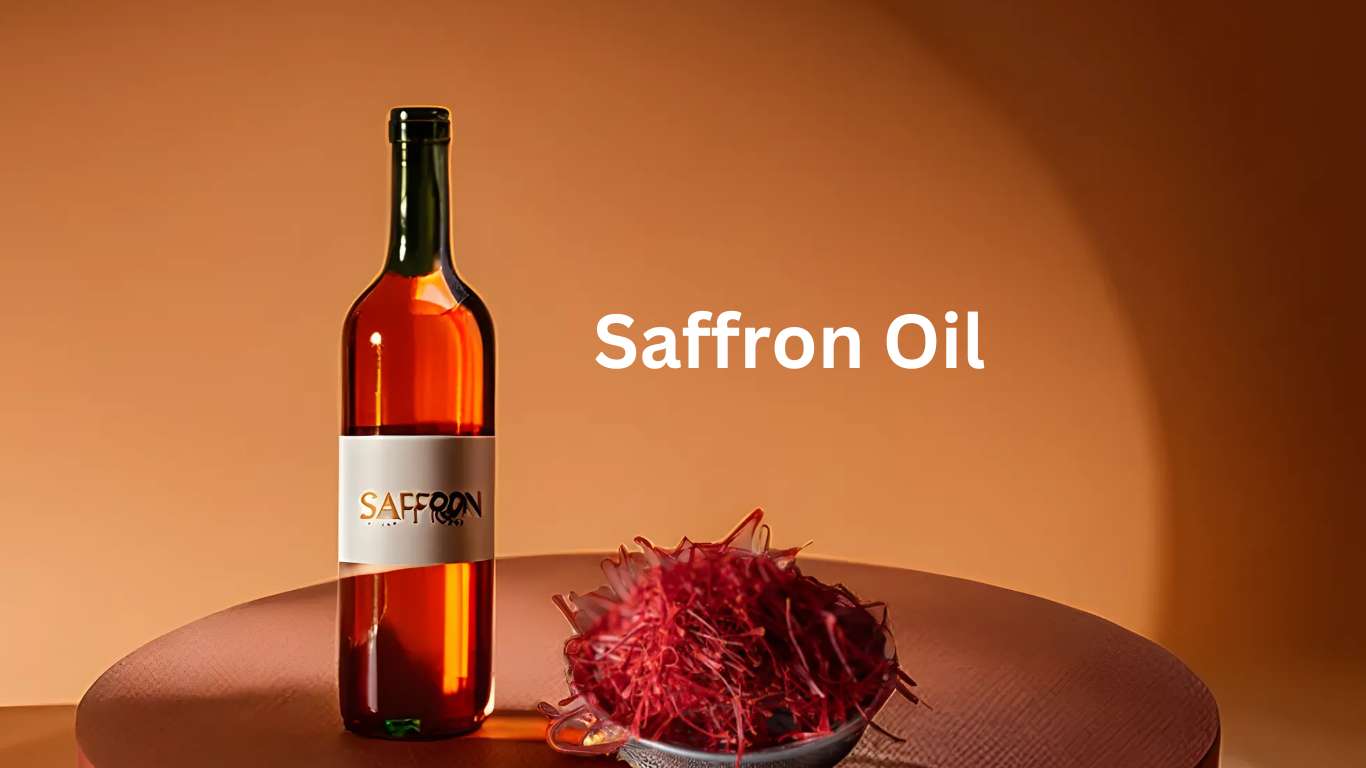What is Saffron Oil?

Saffron oil? Yes, it’s surprising that such a delicate spice like saffron has oil. But it’s good to know that saffron contains chemicals like crocin, crocetin, picrocrocin, safranal, moisture, minerals, and 10% fixed oil. Real saffron oil is very rare and expensive. Growing and harvesting saffron is very hard and time-consuming, and making saffron oil also takes a long time. But can you easily make saffron oil? What are the benefits of saffron oil? And what are its uses? We will answer these questions next.
How to Make Saffron Oil?
Making saffron oil isn’t like extracting oil from seeds, where the seeds go into a pressure machine and oil comes out the other side. To make saffron oil, you need to soak saffron threads in sesame oil, olive oil, or almond oil. Then, keep this mixture in a cool, dark place for a few months so the oil can absorb the essence of the saffron threads. After this period, strain the oil and use it for various purposes.
What Are the Uses of Saffron Oil?

Saffron oil can be used in cooking and for beauty treatments for skin and hair. Like saffron itself, saffron oil has many benefits for different parts of the body. Research has shown that saffron can help reduce diabetes, improve mood, increase libido, boost the immune system, and more. Saffron oil also offers these benefits. While you can find saffron pills and medicines in stores, homemade saffron oil made from saffron threads is special.
For beauty, saffron oil is great for skin and hair care. People in the East have long used saffron baths, masks, and soap to keep their skin and hair healthy. Today, with many saffron-based skincare products available, including ready-made saffron oil, you can easily continue this tradition.
What Are the Benefits of Saffron Oil
We’ve talked about the benefits of saffron before. Saffron oil, like saffron threads, is packed with nutrients like manganese, magnesium, calcium, copper, iron, phosphorus, zinc, vitamin A, B vitamins, potassium, folic acid, and more, giving it many health benefits.
Saffron has strong antioxidants that fight free radicals, which can damage body cells. These antioxidants help boost the immune system and fight bacteria, viruses, and fungi. Saffron also has anti-inflammatory properties, which help reduce inflammation in the gut, stomach, and joints. All these benefits apply to saffron oil as well.
Saffron oil improves blood circulation, protecting brain cells from damage and helping to reduce stress and depression symptoms.
Using a few drops of saffron oil daily can increase libido in both women and men, improve erectile function in men, and reduce premenstrual syndrome (PMS) symptoms in women.
Saffron oil strengthens hair follicles, and the B vitamins in it make hair shinier and thicker. It also helps reduce acne, pimples, and dark spots, making the skin clearer and brighter.
How to Use Saffron Oil?
For eating, just use a few drops of saffron oil each day, like on a salad or in your food. Since it’s very potent, don’t use more than a few drops a day, as too much can be harmful and might cause poisoning. Be careful with the amount you use.
For skin care, rub some saffron oil on your hands and then apply it to your face. Some people mix saffron oil with milk and flour to make a paste for a face mask. For hair care, use a dropper to put a few drops on different parts of your scalp and then massage it in. Some people also mix saffron oil with milk to use as a pre-shampoo treatment before they shower.
Final Words
In this article, we explained that saffron oil is made by combining saffron threads with olive oil, sesame oil, or almond oil. The benefits of saffron oil are similar to those of saffron itself and can be used to treat or prevent illnesses as well as for skin and hair beauty treatments. Remember, when consuming saffron oil, don’t use more than a few drops a day, as too much saffron can be toxic. If you have any information about saffron oil, share it in the comments so others can learn from your experiences.
To buy premium Iranian saffron (Super Negin), click here.


